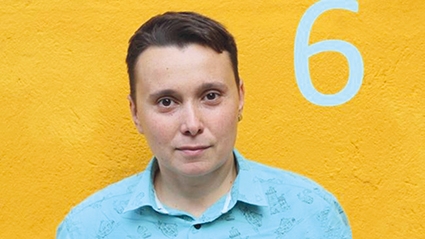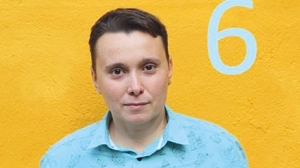A Broken Oath
Op-ed
Over the past year, the world has had its eye on the South Caucusus, especially Georgia, with the economic growth it has experienced and potential future NATO membership, it is difficult to not look away.
With the world watching, clashes between liberals and conservatives in Georgia have been drawing international attention the past year, exposing a cultural division between two rival groups in Georgian society. One considers itself liberal and progressive; the other is considered conservative, religious, nationalist and often classified as homophobic, usually represented by the older generation.
Disputes between conservative Georgians and those who support diversity have continued since Georgia broke away from the Soviet Union, where religious and sexual diversity were completely tabooed. This heritage still influences the values and behaviour in the country with the older generation still in a sense used to the “old” ways.
In the 2014 World Value Survey, Georgia was ranked one of the most homophobic countries in the world – with some 86.6% of those surveyed unhappy with the idea of having a gay or lesbian neighbor.
A very recent case, a transgender woman who died on July 19 from complications of AIDS, is an example of this hate towards others being fostered in a very negative way. Gay rights activists in Tbilisi have taken up the case saying the way she was treated by the country’s healthcare system illustrates just how large the gap is between Georgia’s antidiscrimination laws and the actual realities faced by transgender patients in hospitals.
A lawyer from the Tbilisi-based rights group Identoba, Nino Bolkvadze, stated that taboos against homosexuality cause many difficulties for lesbians, bisexuals, and gay men in the predominantly Orthodox Christian country. However, in the most recent incident, Bolkvadze stated that the 24-year-old who died of tuberculosis at the Batumi Center for AIDS and Tuberculosis, who has been identified only as Lika, faced even greater difficulties as a transgender woman with AIDS.
Bolkvadze argued that as a transgender patient, Lika required special treatment to ensure her “honor and dignity” as required by Georgia’s law on patient rights, which forbids discrimination on the basis of sexual orientation. Georgia’s health system has a strategic plan on AIDS; however, there is no consideration in that plan for the special needs of transgender people.
Transgender people are often alienated from their families at a very young age, this happens all around the world, and even more so in Georgia.
"When this happens, they might not have access to the education and healthcare systems and their economic situation becomes very difficult. They often have to become sex workers to survive, which makes them vulnerable to HIV infection, among transgender people, the HIV infection rate in Georgia is 25%, which already means HIV is an epidemic for this group, If all this is not considered as part of the government's AIDS strategy, then HIV will always be prevalent among transgender people in Georgia and the death rate will be high," Bolkvadze explained.
Gocha Gabodze, a LGBT rights activist, stated that transgender people sometimes have to pay money for healthcare services that would be provided free to others.
"Not everybody knows their rights and what they are entitled to receive from healthcare institutions," Gabodze said.
It is the responsibility of every hospital/clinic employee, be they doctor, surgeon, nurse or general staff, to provide the care needed for a patient, yet a human being died because she was denied the proper care any other person would have received in her situation.
Physicians swear an oath when they finish their medical studies, namely the Hippocratic Oath, in which it states a physician may not play God: “I will respect the privacy of my patients, for their problems are not disclosed to me that the world may know. Most especially must I tread with care in matters of life and death. If it is given me to save a life, all thanks. But it may also be within my power to take a life; this awesome responsibility must be faced with great humbleness and awareness of my own frailty. Above all, I must not play God.”
Lika was admitted to Batumi's AIDS and tuberculosis clinic earlier this year when she became too weak from her illnesses to even stand on her own.
Lika told the Batumi-based Batumelebi newspaper in an interview on July 4 that doctors were refusing to treat her as a transgender woman, insisting that their patients be treated either as males or females.
These physicians broke their oath.
When Lika was a 6-year-old boy, she was sexually abused by two other boys. She became an active homosexual as a young teenager. At the age of 14, when Lika’s family discovered her sexual orientation, they sent her away to live with relatives in Tbilisi. Those relatives also kicked her out of their home when they discovered her homosexuality. She lived in a Christian Orthodox monastery for about 18 months as an adolescent teenager.
It was after she reached adulthood and left the monastery that she became a transgender woman.
"For the last few years, I survived by earning money as a sex worker," Lika said.
Unfortunately there is no direct punishment for breaking the Hippocratic Oath, although an arguable equivalent is medical malpractice, which carries a wide range of punishments, from legal action to civil penalties.
By Shawn Wayne











